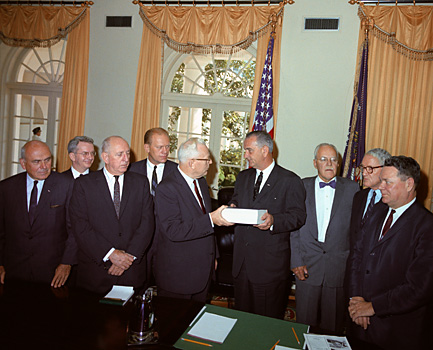Warren Report is a summary of events related to the assassination of United States President John F. Kennedy in Dallas, Tex., on Nov. 22, 1963. Issued by the Warren Commission in September 1964, it concluded that Lee Harvey Oswald, acting alone, shot Kennedy from a window on the sixth floor of the Texas School Book Depository building. The report also said that Jack Ruby acted alone in killing Oswald on Nov. 24, 1963, in a Dallas jail. The report found no evidence of a conspiracy involving Oswald and Ruby. It criticized the U.S. Secret Service and Federal Bureau of Investigation (FBI), and it asked for better measures in the future to protect the president.
The commission was appointed on Nov. 29, 1963. President Lyndon B. Johnson named Earl Warren, chief justice of the United States, to head the commission. The other members were Senator Richard B. Russell, Democrat of Georgia; Senator John S. Cooper, Republican of Kentucky; Representative T. Hale Boggs, Democrat of Louisiana; Representative Gerald R. Ford, Republican of Michigan; Allen W. Dulles, former director of the U.S. Central Intelligence Agency (CIA); and John J. McCloy, former adviser to President Kennedy. During 10 months, the commission took testimony from 552 witnesses.

After the Warren Report was issued, other investigations criticized the report’s findings. During the late 1970’s, a special committee of the U.S. House of Representatives reexamined the evidence. It concluded that Kennedy “was probably assassinated as a result of a conspiracy.”
